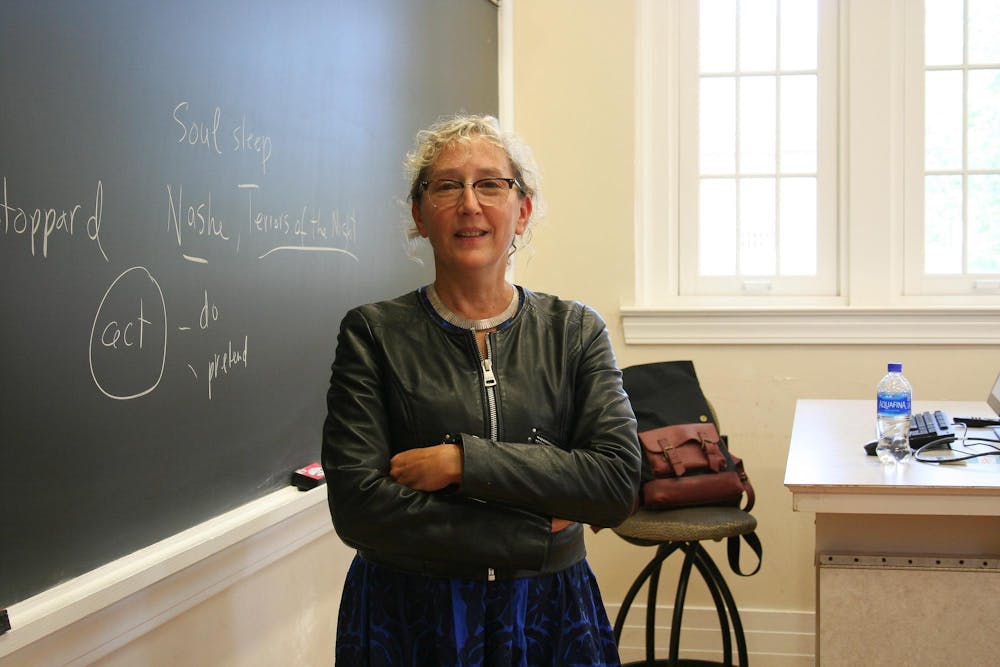The Department of Dramatic Art at UNC spent just over $3 million from funds it received in the 2022-23 fiscal year and had 53 declared undergraduate majors during that time. The ECL department spent under $13 million and had 358 undergraduate declared majors during that fiscal year.
The Department of Chemistry had 323 undergraduate declared majors, less than the number of undergraduates in the ECL department, with about $42.5 million in expenditures in the 2022-23 fiscal year. The biology department had about $27 million in expenditures and had 1,528 undergraduate declared majors in the same year.
A difference in funding and expenditures between arts and sciences is something Dowell said she expected from UNC and other colleges like it.
“I think that is something that’s pretty universal to most colleges, that they’ll have more funding to STEM majors or STEM classes,” Dowell said.
Robert Duronio, chair of the biology department, said one of the department's main funding sources is the state of North Carolina, which often supports faculty salaries. Federal grants primarily fund research in the department.
He said he feels very well-supported by the college and that the University gives support and state funding to meet its needs.
Biology's funded expenditures are the second highest in the College of Arts and Sciences, after chemistry, and it is the second largest major, after psychology and neuroscience.
Similar to the English department, he thinks there could be some upgrades to the buildings, especially Wilson Hall.
“It’s just a problem with a major institution like this is it takes a lot of resources just to maintain it. Normal operating costs, but building in costs to maintain infrastructure like that is a challenge,” Duronio said.
As of Aug. 14, UNC's deferred maintenance backlog remains at $1.1 billion.
Unlike biology, the jazz studies area in the music department has been almost entirely donor-funded since 2020, according to professor Stephen Anderson. Only he and the other tenured professor, Rahsaan Barber, have salaries not funded by donors.
To get the day's news and headlines in your inbox each morning, sign up for our email newsletters.
Anderson said the program has never done a pledge drive for funding. Instead, the donations come from people who attend their events and concerts. Some donations go to the College of Arts and Sciences, directed to the jazz area, but other donations go directly to the department through the chair.
Sophomore Payton Salmonson, a music major with a focus in jazz studies, said the current model in the program is difficult for students. With only two tenured professors, most students are taught by adjunct professors.
Salmonson said this makes it harder for students to reach their professors outside of class and form personal relationships with them.
Because they have a tenured professor, Salmonson can just knock on an office door when he needs help. They said that many of the adjunct professors are only on campus one or two days a week and their friends who play brass, bass or drums must wait for email responses or until their next class if they need additional help.
“It just definitely makes it more difficult to have a closer relationship with the instructor, and be able to learn whenever you need them,” Salmonson said.
Chair of the Department of Dramatic Art Kathryn Hunter-Williams said the department is very supported by the college, but keeping up with technology upgrades is difficult. The department specifically needs a better theater lighting system and more sound equipment.
Hunter-Williams said they get some donations from alumni and other sources, and she raises department action items to potential donors.
“We always find a way to fix it when it breaks, because we do shows, and the show must go on,” Hunter-Williams said.
Amie Cooke contributed reporting to this story.
@hamsinisiva3
@dailytarheel | university@dailytarheel.com



